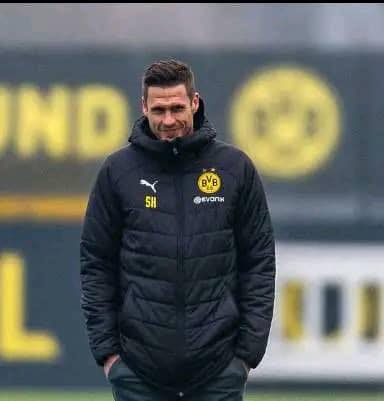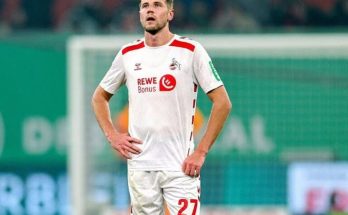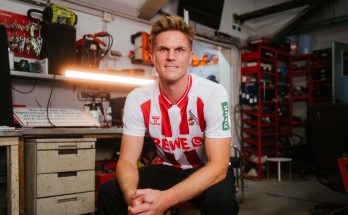Borussia Dortmund is once again at the center of the football universe, but this time the earthquake does not come from the pitch, rather from the man pulling the strings in the background. Sebastian Kehl, once a celebrated captain on the field and now the sports director of the club, has sent shockwaves across the Bundesliga with his daring approach and uncompromising vision for the club’s future. Once seen as a risky successor to the legendary Michael Zorc, Kehl now stands at the heart of Dortmund’s quest for greatness. His bold decisions, innovative strategies, and fearless transfers have ignited debates among fans, stirred fear in rivals, and forced the football world to ask: is he the master strategist Dortmund has long needed, or is he pushing the club toward a dangerous gamble that could backfire?
The role Kehl stepped into was anything but easy. Michael Zorc was a figure synonymous with Dortmund’s identity, having led the club’s sporting direction for decades and been responsible for some of its greatest successes in recruitment and development. Zorc was respected not only for his shrewd eye for talent but also for his ability to balance Dortmund’s position as a top German club constantly losing stars to bigger European giants. Taking over such a legacy was daunting, and at the time of his appointment, many doubted whether Kehl had the charisma, experience, or ruthlessness to fill such shoes. He was seen as a safe, perhaps too safe, internal solution rather than the bold visionary the club might need to close the gap with Bayern Munich.
But that perception is rapidly changing. In recent months, Kehl has revealed a side that many did not expect. No longer content to merely manage Dortmund’s role as the Bundesliga’s eternal second-best, he has drawn up a masterplan that challenges old assumptions. The strategy involves bold transfers, a ruthless hunger for trophies, and an unshakable determination to end Bayern’s dominance. Dortmund is no longer positioning itself only as a selling club, but rather as a competitor ready to mix ambition with pragmatism.
His transfer activity has been a key indicator of this new era. In the past, Dortmund was known for identifying young talents, developing them, and eventually selling them for enormous profits—think Ousmane Dembélé, Jadon Sancho, Erling Haaland, and Jude Bellingham. While those deals strengthened Dortmund financially, they also weakened the team’s stability and robbed it of continuity when the stars inevitably departed. Kehl, however, has begun shifting this model. While he still emphasizes the importance of young talent, he has also sought balance by bringing in players who are not just future stars but immediate difference-makers. Signings under his watch have demonstrated a mix of vision and ruthlessness, with the clear intention of building a squad capable of challenging on all fronts rather than serving as a showcase for Europe’s wealthiest clubs.
For example, Dortmund’s recent activity in the transfer market reflects Kehl’s refusal to sit idly by. Instead of settling for stopgap solutions, he has pursued ambitious targets. This boldness has put rivals on alert, as they can no longer expect Dortmund to quietly operate in Bayern’s shadow. His willingness to invest in proven players while still nurturing promising youngsters signals a strategic blend of short-term competitiveness and long-term stability. Fans may debate whether this approach sacrifices Dortmund’s traditional identity, but there is no doubt it has reignited ambition.
Of course, Kehl’s strategy has not come without controversy. Within the fanbase, there is division. Some admire his no-nonsense approach, seeing in him the embodiment of the club’s historic fighting spirit. These fans believe he is the leader Dortmund desperately needs, a figure who refuses to bow down to Bayern or settle for silver medals. Others, however, worry that his aggression could jeopardize the club’s financial security or disrupt the delicate balance that has kept Dortmund competitive while remaining sustainable. The memory of past financial crises still lingers in Dortmund’s history, and many fear the risk of reckless ambition.
Rivals, on the other hand, are anything but relaxed. Bayern Munich, in particular, has long enjoyed the comfort of knowing Dortmund would develop stars for them or at least not consistently challenge their hegemony. With Kehl at the helm, that assumption is under threat. The atmosphere in Munich is shifting; Dortmund is no longer content to act as Bayern’s sparring partner but is instead plotting a genuine power shift. Beyond Germany, European clubs are also beginning to see Dortmund less as a feeder club and more as a competitor that could retain its best players and pose a real threat on the continental stage.
The hunger for titles is palpable in Kehl’s words and actions. He has openly stated that finishing second is not enough, that the club must break free from the mentality of being “nearly men.” For too long, Dortmund has come close to glory—whether in heartbreaking Bundesliga seasons where Bayern snatched the title in the final weeks, or in cup competitions where consistency was lacking. Kehl’s vision is rooted in changing that narrative. He wants a Dortmund side that enters every competition with the genuine expectation of winning, not just competing. This psychological shift is as important as any transfer or tactical move, because Dortmund has often been accused of lacking the killer instinct required to dominate.
What makes Kehl’s vision even more compelling is his understanding of the club’s identity. As a former captain, he knows the passion of the Yellow Wall, the unique atmosphere of Signal Iduna Park, and the pride that comes with wearing black and yellow. His decisions are not detached from the culture of Dortmund; rather, they are shaped by it. He understands the balance between dreaming big and staying true to the values that make the club special. That combination—insider knowledge and forward-looking strategy—gives him credibility in ways an external hire could never achieve.
Still, the question remains: will Kehl’s revolution succeed? Transforming Dortmund from perennial challengers into consistent winners is no small task. Bayern Munich remains a powerhouse with immense resources and a winning mentality deeply embedded in their DNA. Leverkusen, RB Leipzig, and other rising forces also stand in the way. In Europe, the competition is even fiercer, with clubs like Manchester City, Real Madrid, and Paris Saint-Germain far ahead financially. For Kehl, success will not come overnight. It requires patience, discipline, and perhaps even a little luck.
Yet even in this early stage, the tremors of his decisions are being felt. The football world is beginning to talk about Dortmund not as an afterthought but as a central character in the drama of European football. The mere fact that Dortmund is sparking fear and uncertainty among rivals is evidence of the shift Kehl has initiated. His determination to rewrite the club’s narrative is unmistakable, and whether one agrees with his approach or not, no one can deny that Dortmund under Kehl feels different.
The Bundesliga has long suffered from predictability, with Bayern’s dominance draining some of the suspense from the competition. Kehl’s vision injects fresh drama, promising a clash not only of players on the pitch but of philosophies in the boardrooms. If Dortmund truly rises to the top, it will not just be a victory for the club but for German football as a whole, restoring balance and competitiveness to a league often criticized for its one-sidedness.
For the fans, the story is still unfolding. The Yellow Wall continues to roar in support, but beneath the chants lies a mix of hope and anxiety. They dream of titles, of dethroning Bayern, of European nights where Dortmund emerges victorious. At the same time, they worry about the cost of chasing glory and whether Kehl can deliver without compromising the club’s long-term health. This tension is what makes the current moment so fascinating: Dortmund stands at a crossroads, and the path ahead could lead to historic triumph or bitter disappointment.
In the end, the legacy of Sebastian Kehl will be judged not by his words or even his signings but by the trophies that adorn Dortmund’s cabinet. If he succeeds, he will go down as the man who reshaped the club’s destiny, the architect of a golden era that rivaled anything in its history. If he fails, critics will remember him as a gambler who dared too much and risked stability for dreams that never materialized. But one thing is certain: he has already changed the conversation. Dortmund is no longer passive, no longer predictable, and no longer content with being second best.
The football world is trembling because Sebastian Kehl has made it clear: Borussia Dortmund is ready to fight for the top, and nothing less will satisfy. The earthquake he has created is not just about transfers or strategy—it is about ambition, pride, and the refusal to accept mediocrity. Whether this earthquake levels the old order or collapses upon itself remains to be seen, but one thing is undeniable: Borussia Dortmund, under Sebastian Kehl, is alive, hungry, and ready to shake the very foundations of the game.


